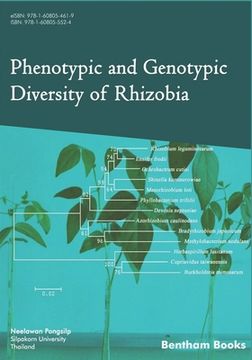Reseña del libro "Phenotypic and Genotypic Diversity of Rhizobia (en Inglés)"
Rhizobia are composed of specific groups of bacteria that have the ability to induce symbiotic nitrogen-fixing nodules on the roots or stems of leguminous plants. Rhizobia have attracted a great attention for more than 4 decades because of their enormous agricultural and economic value in sustainable agriculture. Up to the present time, many legumes have been found to be nodulated by several rhizobial species in diverse taxonomic groups. An assessment of rhizobial diversity provides pivotal information in understanding the horizontal gene transfer among bacterial genera and species, the bacterial evolution and the symbiotic effectiveness. The classification of rhizobia is becoming increasingly complex and is revised periodically because of new findings that propose new genera and new species. "Phenotypic and Genotypic Diversity of Rhizobia" presents the application of conventional and molecular analyses, including numerical analysis, enzyme patterns, serological studies, plasmid profile, polymerase chain reaction (PCR)-fingerprinting, amplified fragment length polymorphism (AFLP), restriction fragment length polymorphism (RFLP), PCR-RFLP and sequence-based methods, to the examination of rhizobial diversity. Principles of these techniques, the resolving power, the advantage and the limitation of these techniques are evaluated. Current taxonomy of rhizobia classifies them into 17 genera and 118 species.The book explains background knowledge about rhizobia and follows this up with a broad perspective on rhizobial diversity, information on characteristics specific to each group of rhizobia, the relationship among rhizobial groups as well as genetic factors contributed to rhizobial diversity. Contemporary methods for examination of rhizobial diversity are also suggested and discussed.Readers of this book will find updated information on key concepts in classification and taxonomy of rhizobia, the categories and techniques used to examine the phenotypic and genotypic diversity of rhizobia (including numerical analysis, enzyme patterns, serological study, plasmid profile, polymerase chain reaction (PCR)-fingerprinting, amplified fragment length polymorphism (AFLP), restriction fragment length polymorphism (RFLP), PCR-RFLP and sequence analysis).

